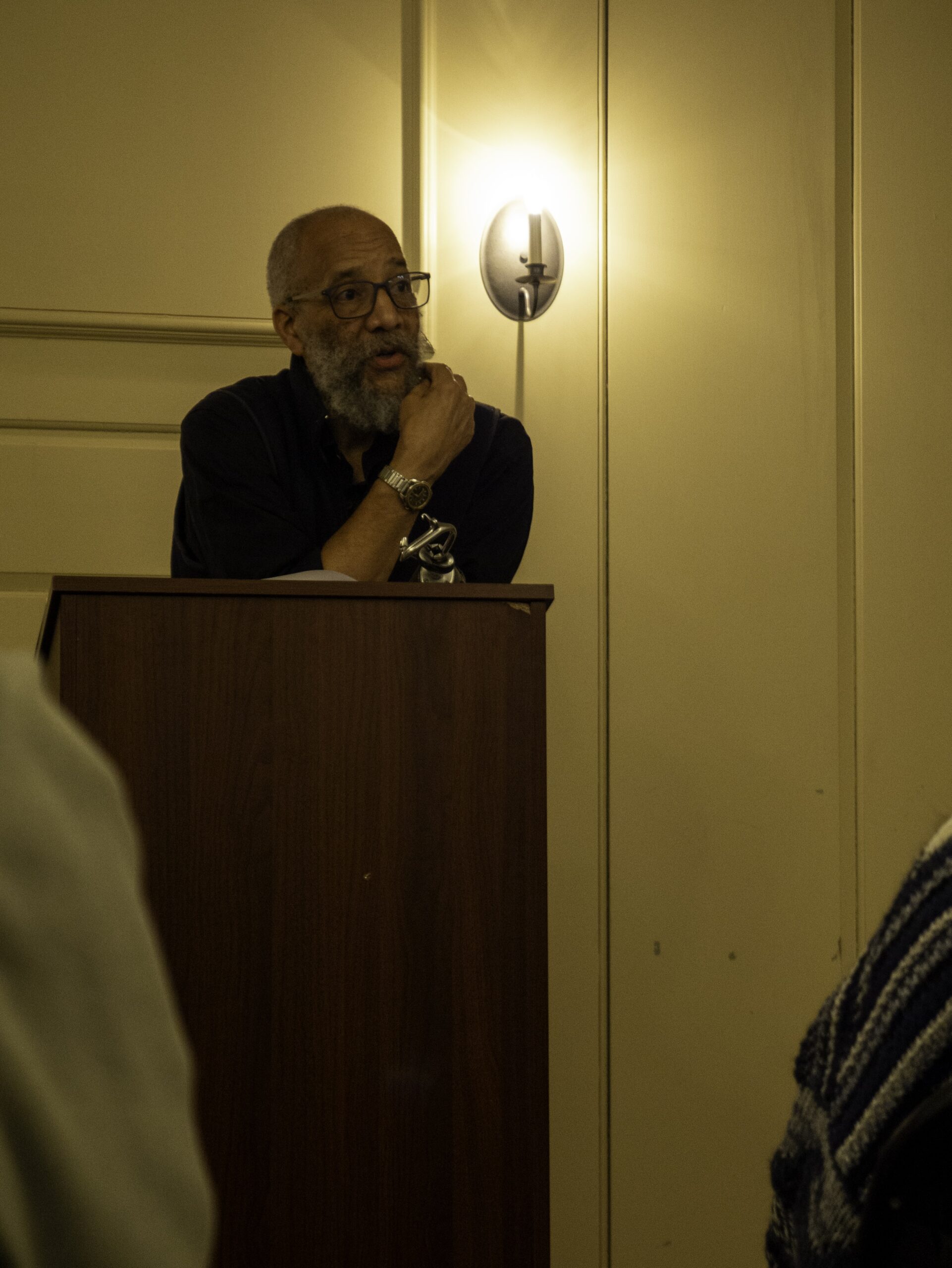Poet C.S. Giscombe speaks on history, place and time in Alpha Delta Phi Visiting Writers Series reading
April 18, 2025
 Isa Cruz
Isa CruzOn Tuesday night, students, faculty and members of the Brunswick community gathered on the top floor of Massachusetts Hall for another iteration of the Alpha Delta Phi Visiting Writer Series. This event was co-sponsored by the English department and the Africana studies department.
The writer of the hour was C.S. Giscombe, an essayist and poet whose work spans decades and who has been awarded several accolades, including an American Book Award for his 1998 poetry collection “Giscome Road.” Now, Giscombe serves as the Chair of the English Department at the University of California, Berkeley.
Despite living and working in California, Giscombe has a special connection to Bowdoin: Assistant Professor of English Samia Rahimtoola, who introduced Giscombe at the event, was once his graduate school student.
“As [I was] a graduate student enrolled in one of his workshops at UC Berkeley, C.S. reinvented the form of the classroom to be more capacious, open, baggy, if you will, so that it could hold more and stretch further,” Rahimtoola said.
She recalled a field trip she took with Giscombe to Point Reyes, Calif., to broadcast their poetry on the airwaves.
Giscombe’s work reflects these various, cross-continental connections. His poetry deals with places such as California, Pennsylvania, Ohio—where he was born—and the rural South.
“A concern with place and the history entwined in place looms large in his work,” Rahimtoola said.
Much of Giscombe’s poetry shared on Tuesday night revolved around place and family, including the first poem he read, which dealt with his family’s migration from the South to the Midwest.
“Some [of these poems are] about the Great Migration of Black people, including my family coming north. We’re migrants,” Giscombe said.
Many of Giscombe’s readings came from his recent collection of poetry entitled “Negro Mountain,” named after a mountain in the Allegheny Range in Somerset County, Pa. As Giscombe explained, the name of the mountain and his poetry collection refer to an African American frontiersman who was killed in battle in 1756.
“The Black man … who died on the ridge now called Negro Mountain, is beyond reach. The mountain, the very long shadow, survives,” Giscombe said when reading the introduction to the book.
Rahimtoola took note of Gisombe’s attention to history, particularly the history behind the names of places.
“He reminds us we are also situating ourselves in history,” Rahimtoola said.
Giscombe’s work locates itself within literary history as well, referencing and alluding to various poets. When asked by an audience member whether these references were intentional or accidental, Giscombe said it is a little of both.
“I would not wish to claim that there is a consciousness of control,” Giscombe said. “If I’ve read something, it’s going to stay with me, buried in the back of my head.”
This same sentiment applies to Giscombe’s own work. He said that his long career means reading poems from decades ago, poems that do not always strike him the same way as when he wrote them.
“Things do resonate, and things don’t,” Giscombe said.
Still, Giscombe says he finds joy in referencing himself, updating and refining the resonances with time.
“You refer to something you wrote 30 years ago, and you can talk about that,” Giscombe said.
Regardless, Giscombe’s work is concerned with history, both his own and the history of place, and what kinds of stories we tell about those histories.
“There’s resonances, and then things I’m not going to talk about,” Giscombe said.

Comments
Before submitting a comment, please review our comment policy. Some key points from the policy: